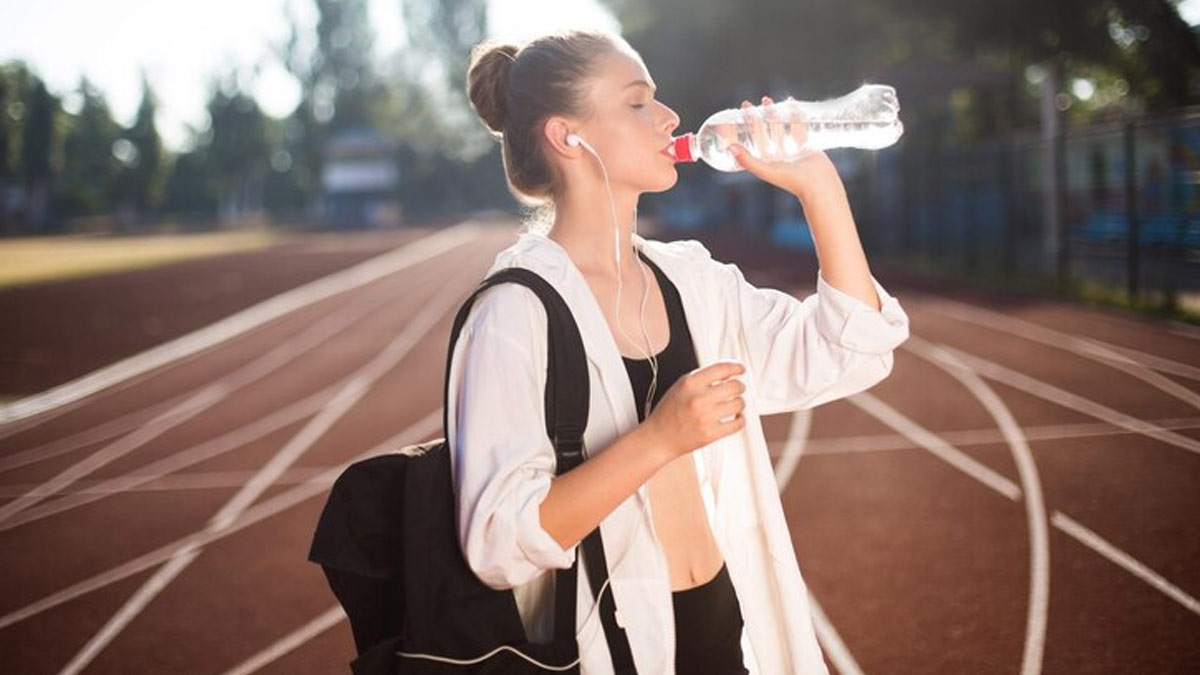
Hydration is one of the most important aspects of maintaining good health. According to a trusted source, the human body is made up of around 60% water, and this water is essential for a variety of bodily functions, including regulating body temperature, transporting nutrients and removing waste products. It's no surprise that staying hydrated is crucial for optimal health.
Table of Content:-
Many people don't realise that there is more to hydration than simply drinking water when you feel thirsty. In fact, there is a phenomenon called "silent hydration" that refers to the fact that our body needs water even when we don't feel thirsty.
When Does Silent Dehydration Occurs
Silent dehydration happens when our bodies lose water through natural physical operations like sweating and breathing but the water does not get replenished . Even if we don't feel thirsty, this can lead to dehydration.
So how much water does our body actually need? The answer to this question can vary depending on a number of factors like age, weight, activity level and climate.

In general, the National Academies of Sciences, Engineering, and Medicine of the United States recommends 11.5 cups (2.7 litres) of water per day for women and 15.5 cups (3.7 litres) of water each day for men. However, this is just a guideline, and some people may need more or less water depending on their individual circumstances.
If you are really active and sweat a lot, for example, you will need to drink more water to replace the fluids lost by sweating. If you live in a cooler environment and are less active, you may not require as much water.
Also read: Foul-Smelling Urine Can Be A Sign Of UTI; 5 Other Possible Causes To Watch Out For
Your age is another factor that can influence how much water you require. Our bodies grow less efficient at controlling water balance as we get older, which means we may need to drink more water to be hydrated.

It's also worth noting that the amount of water you need can vary depending on what you eat. Foods that are high in water, such as fruits and vegetables, can contribute to your overall water intake, whole foods that are high in salt or sugar can dehydrate you and increase your need for water.
Tips To Stay Hydrated
So how can you make sure you are getting enough water, even if you don't feel thirsty? Here are some tips:
- Carry a water bottle with you wherever you go. This will make it easy to sip on water throughout the day, even if you don't feel particularly thirsty.
- Set reminders to drink water. If you struggle to remember to drink water, try setting reminders on your phone or computer to drink water at regular intervals.
- Eat foods that are high in water. As mentioned earlier, fruits and vegetables are a great source of water, so try incorporating more of these into your diet.
- Drink water before, during, and after exercise. If you are physically active, make sure you are drinking water to replace the fluids lost through sweating.
- Pay attention to the colour of your urine. If your urine is dark yellow, this is a sign that you may be dehydrated and need to drink more water
Also read: Pulmonologist Tips To Manage Asthma The Correct Way During Pregnancy
Takeaway
Staying hydrated is crucial for good health, and silent hydration is a phenomenon that underscores the importance of drinking enough water, even if you don't feel thirsty. The amount of water you need can vary depending on a number of factors, including age, weight, activity level, and climate, so it's important to pay attention to your body's signals and make sure you are drinking enough water to stay hydrated.
Also watch this video
How we keep this article up to date:
We work with experts and keep a close eye on the latest in health and wellness. Whenever there is a new research or helpful information, we update our articles with accurate and useful advice.
Current Version